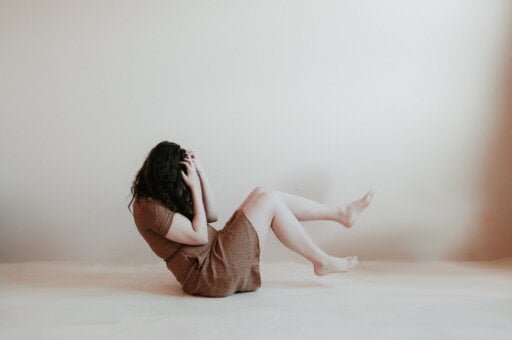Have you recently stopped taking birth control and noticed an increase in anxiety? If so, you may be wondering how long it will take for these anxious feelings to subside. The transition after stopping birth control can affect each individual differently, but generally, it takes around a few weeks to a few months for anxiety symptoms to fade away. In this article “How Long Does It Take For Anxiety To Go Away After Stopping Birth Control”, we will explore the factors that contribute to anxiety after discontinuing birth control and provide some practical tips to manage anxiety during this transition period.
Understanding the Relationship Between Birth Control and Anxiety
Anxiety is a common experience for many individuals, and it can be influenced by a variety of factors. One such factor that has garnered increasing attention in recent years is the use of birth control. While birth control is primarily used to prevent pregnancy, it can also have an impact on an individual’s mental and emotional well-being, including their anxiety levels. Understanding the potential relationship between birth control and anxiety is important for those who are currently using or considering using birth control methods.
How birth control can contribute to anxiety
It is important to note that not all individuals will experience anxiety as a result of using birth control. However, for some individuals, hormonal fluctuations caused by certain types of birth control can contribute to increased anxiety levels. Hormones such as estrogen and progesterone, which are commonly found in birth control pills, can affect neurotransmitters in the brain that are responsible for regulating mood and anxiety. This can lead to an increase in anxiety symptoms for some individuals.
The different types of birth control and their potential impact on anxiety
There are various types of birth control available, including oral contraceptive pills, hormonal patches, intrauterine devices (IUDs), and hormone injections. The specific impact on anxiety can vary depending on the type of birth control used. For example, some individuals may find that certain brands or formulations of oral contraceptive pills exacerbate their anxiety symptoms, while others may have a different response. It is important to understand that individual responses can vary, and what works for one person may not work for another.
The link between hormonal fluctuations and anxiety
Hormonal fluctuations can play a significant role in the development or exacerbation of anxiety symptoms. When using certain types of birth control, such as hormonal pills or patches, these fluctuations can occur. For example, the synthetic hormones in birth control pills can disrupt the natural hormone levels in the body, potentially leading to mood swings and increased anxiety. Understanding the connection between hormonal fluctuations and anxiety can help individuals make informed decisions about their birth control options.
Factors Affecting Anxiety After Stopping Birth Control
While birth control can contribute to anxiety symptoms, there are also factors that can influence anxiety levels after discontinuing its use. It is important to consider these factors when deciding to stop using birth control and managing anxiety symptoms.
Individual variation in response
Every individual is unique, and their response to stopping birth control can vary. Some individuals may experience an immediate decrease in anxiety symptoms, while others may experience an increase. Understanding and accepting that individual responses can differ is essential to managing anxiety during this time.
Duration of birth control use
The duration of birth control use can also play a role in anxiety levels after discontinuation. Those who have been using birth control for an extended period may have a different experience than those who have used it for a shorter duration. The body may take some time to adjust to the absence of synthetic hormones, which could potentially affect anxiety levels.
Underlying anxiety disorders
It is important to consider pre-existing anxiety disorders when considering stopping birth control. For individuals with a history of anxiety disorders, stopping birth control may cause a temporary increase in anxiety symptoms. In these cases, it is crucial to work closely with healthcare professionals to develop a plan for managing anxiety during the transition period.
Hormonal imbalance and withdrawal symptoms
After discontinuing birth control, the body may experience a temporary hormonal imbalance as it readjusts to natural hormone levels. This adjustment period can contribute to anxiety symptoms. Additionally, some individuals may experience withdrawal symptoms, such as mood swings or changes in menstrual patterns, which can also impact anxiety levels. It is essential to be aware of these potential effects and seek support if needed.

Immediate Effects After Stopping Birth Control
When stopping birth control, it is important to be prepared for any immediate effects that may occur, including potential changes in anxiety symptoms. It is essential to prioritize self-care during this time and understand the potential reasons behind these effects.
Potential increase in anxiety symptoms
For some individuals, stopping birth control may lead to an immediate increase in anxiety symptoms. This could be due to the sudden cessation of synthetic hormones, hormonal fluctuations, or other factors. It is important to note that this increase in anxiety symptoms may be temporary and subside as the body adjusts.
Hormonal shifts and adjustment period
After stopping birth control, the body may go through a period of hormonal shifts as it readjusts to its natural state. These shifts can contribute to changes in mood and anxiety levels. It is crucial to give the body time to adjust and be patient with oneself during this adjustment period.
Short-term Effects of Stopping Birth Control on Anxiety
The first few weeks after discontinuing birth control can be a time of transition for the body. It is important to understand the potential short-term effects on anxiety and take steps to manage and alleviate any symptoms.
First few weeks after discontinuation
During the first few weeks after stopping birth control, it is not uncommon to experience fluctuations in anxiety levels. These fluctuations can be attributed to the body adjusting to the absence of synthetic hormones and rebalancing its natural hormone levels. It is important to be patient and allow the body time to adapt during this period.
Rebalancing of hormonal levels
The discontinuation of birth control allows the body to rebalance its natural hormonal levels. While this rebalancing is a positive step towards returning to the body’s natural state, it can also contribute to fluctuations in anxiety levels. It is essential to be mindful of these changes and seek support if needed.
Resolving temporary imbalances and side effects
As the body adjusts to the absence of birth control, temporary imbalances and side effects may occur. These imbalances and side effects can influence anxiety levels. However, it is important to remember that they are often temporary and should resolve as the body settles into its natural menstrual cycle and hormonal rhythms.

Long-term Effects of Stopping Birth Control on Anxiety
As the body continues to adjust to the absence of birth control, individuals may experience long-term effects on their anxiety levels. Understanding these potential effects can help individuals anticipate and manage their anxiety during this transition period.
Gradual reduction of anxiety symptoms
In the long term, many individuals find that their anxiety symptoms gradually reduce after stopping birth control. As the body rebalances its natural hormone levels and adjusts to its natural menstrual cycle, anxiety symptoms may diminish. This reduction in anxiety can be a positive outcome for individuals who experienced increased anxiety while using birth control.
Stabilizing hormone levels
One of the long-term effects of stopping birth control is the stabilization of hormone levels. Without the influence of synthetic hormones, the body can regain its natural equilibrium. This stabilization can have a positive impact on anxiety levels, as hormone fluctuations are minimized.
Resumption of natural menstrual cycle
After stopping birth control, many individuals will experience a resumption of their natural menstrual cycle. For some, this return to the body’s natural rhythms can positively affect anxiety levels. It is important to note that individual experiences may vary, and some individuals may still experience anxiety symptoms during their menstrual cycle.
Managing Anxiety During the Transition Period
During the transition period after stopping birth control, it is essential to prioritize mental and emotional well-being. There are various strategies individuals can use to manage and alleviate anxiety symptoms during this time.
Seeking support from healthcare professionals
It is crucial to seek support from healthcare professionals who specialize in mental health and reproductive health. They can provide guidance, address any concerns or questions, and develop a personalized plan to manage anxiety during the transition period. This support may include therapy, medication, or alternative birth control options.
Adopting stress management techniques
Engaging in stress management techniques can be beneficial for individuals experiencing anxiety during the transition period after stopping birth control. Techniques such as mindfulness, deep breathing exercises, regular physical activity, and maintaining a balanced diet can help alleviate anxiety symptoms. It is important to find what works best for you and incorporate these techniques into your daily routine.
Exploring alternative birth control options
For individuals who wish to continue using birth control but are concerned about its impact on anxiety, exploring alternative options may be beneficial. Non-hormonal methods such as barrier methods (e.g., condoms), fertility awareness-based methods, or copper IUDs can provide effective contraception without the potential impact on anxiety. Discussing these options with a healthcare professional can help determine the best choice for each individual.

Duration of Anxiety After Stopping Birth Control
The duration of anxiety after stopping birth control varies from person to person. Some individuals may experience a temporary increase in anxiety symptoms that gradually subside over time, while others may see an immediate decrease or no change in their anxiety levels. It is important to understand that there is no one-size-fits-all answer and to be patient with oneself during this period of adjustment.
Typical duration based on research and anecdotes
Research on the duration of anxiety after stopping birth control is limited, as individual experiences can vary significantly. However, anecdotal evidence suggests that anxiety symptoms typically diminish within a few weeks to a few months after discontinuing birth control. It is crucial to listen to your body, monitor symptoms, and seek professional help if anxiety persists or worsens.
When to Seek Professional Help
While anxiety after stopping birth control is often temporary and manageable, there are situations where professional help should be sought. It is important to be aware of the signs and symptoms that indicate the need for additional support.
Persistent and severe anxiety symptoms
If anxiety symptoms persist or become severe after stopping birth control, it may be beneficial to consult a healthcare professional. They can provide a thorough assessment, determine the underlying causes of anxiety, and develop an appropriate treatment plan. This plan may include therapy, medication, or a combination of both.
Pre-existing anxiety disorders
For individuals with pre-existing anxiety disorders, stopping birth control can sometimes exacerbate symptoms. In these cases, it is important to work closely with a healthcare professional throughout the transition period. They can provide additional support, monitor symptoms, and adjust treatment as needed.
Suicidal thoughts or worsening mental health
If you experience suicidal thoughts or notice a significant worsening of your mental health after stopping birth control, it is critical to seek immediate professional help. Contact a mental health helpline, reach out to your healthcare provider, or go to the nearest emergency room. Remember, you are not alone, and help is available.
Conclusion How Long Does It Take For Anxiety To Go Away After Stopping Birth Control
Understanding the potential relationship between birth control and anxiety is important for individuals who use or are considering using birth control methods. While birth control can contribute to anxiety symptoms for some individuals, it is essential to recognize that responses can vary widely. By being aware of the potential short-term and long-term effects of stopping birth control on anxiety levels, individuals can better navigate the transition period. It is crucial to prioritize self-care, seek professional support if needed, and have patience and understanding as the body adjusts. By monitoring symptoms and seeking help when necessary, individuals can effectively manage anxiety during this time of change and transition.
Frequently Asked Questions:
1. Can birth control cause severe anxiety?
- Yes, for some individuals, hormonal changes caused by birth control can contribute to increased anxiety. It’s important to discuss any concerns with your healthcare provider.
2. Can stopping birth control improve mental health?
- Stopping birth control may improve mental health for some individuals, especially if they experienced mood-related side effects. However, it varies, and individual responses differ.
3. Can coming off the pill cause anxiety and depression?
- Yes, discontinuing birth control can potentially trigger anxiety and depression in some individuals. It’s advisable to monitor your mental health and seek support if needed.
4. How long does it take for birth control to get out of your system?
- The time it takes for birth control to leave your system varies based on the type used. Generally, it may take a few days to a few weeks.
5. Which birth control causes the most anxiety?
- Different types of birth control can affect individuals differently. Progestin-only methods may have a higher association with mood changes in some cases.
6. Which birth control is least likely to cause anxiety?
- Low-dose hormonal contraceptives or non-hormonal methods, like copper IUDs, are often considered less likely to cause anxiety. However, responses vary.
7. Why is my anxiety worse after stopping birth control?
- Hormonal fluctuations post-discontinuation can impact mood. It’s crucial to monitor your mental health, and if anxiety persists, consult with a healthcare professional.
8. Why is my mental health bad after stopping birth control?
- Hormonal changes can affect mental health. If you experience persistent mental health issues after stopping birth control, seeking guidance from a healthcare provider is recommended.
9. What are the psychological side effects of stopping birth control?
- Psychological side effects may include mood swings, anxiety, or depression. These effects can vary, and it’s essential to communicate any concerns with a healthcare professional.
10. Will I lose weight if I stop birth control? – Weight changes can occur after stopping birth control, but they are not guaranteed. Individual responses vary, and lifestyle factors also play a role.
11. How do I heal my gut after birth control? – Supporting gut health post-birth control involves a balanced diet, probiotics, and addressing any specific gut-related issues. Consulting with a healthcare professional or nutritionist can provide personalized guidance.
12. How to calm anxiety? – Calming anxiety involves various strategies such as mindfulness, deep breathing, regular exercise, and seeking support from friends, family, or professionals.
13. How do I balance my hormones after birth control? – Balancing hormones post-birth control may involve lifestyle changes, a nutrient-rich diet, and managing stress. Consult with a healthcare provider for personalized advice.
14. What vitamins should I take after stopping birth control? – Commonly recommended vitamins post-birth control include B vitamins, vitamin D, and omega-3 fatty acids. However, individual needs may vary, so consulting with a healthcare provider is advisable.
15. What happens when you come off the pill after 10 years? – Coming off the pill after an extended period may lead to hormonal adjustments. It’s important to monitor your health and discuss any concerns with a healthcare professional.